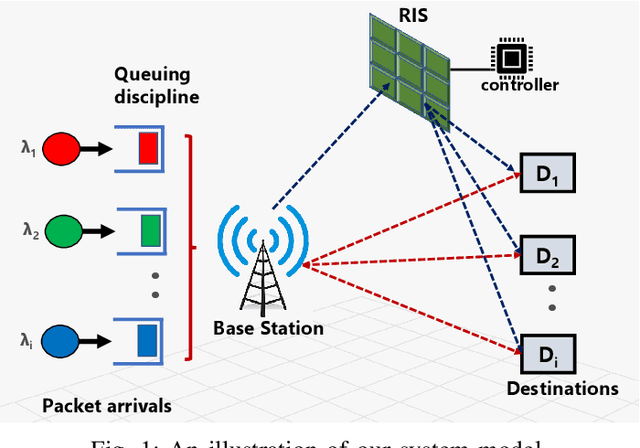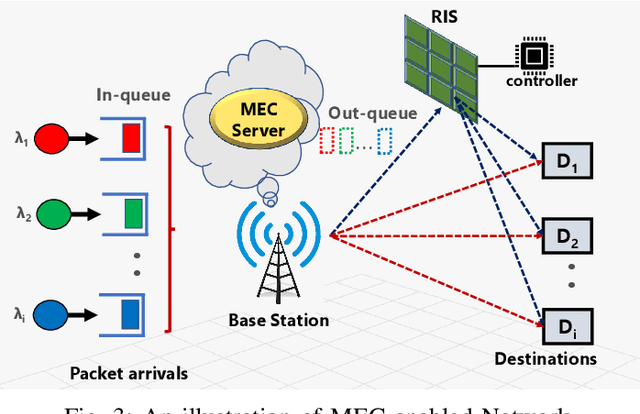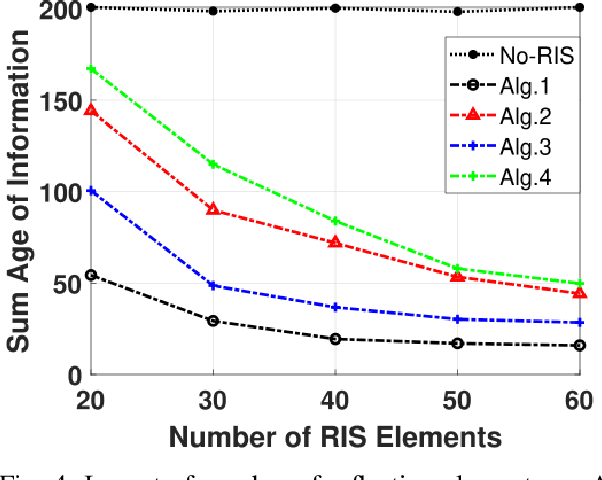Moataz Shokry
Age of Information Optimization in a RIS-Assisted Wireless Network
Mar 11, 2021



Abstract:Future wireless communication networks are envisioned to revolutionize the digital world by offering super-low latency, unrivalled speed and reliable communication. Consequently, a myriad of propitious applications such as augmented/virtual reality, industry 4.0, etc., is anticipated to flourish. These applications rely on real-time information to make critical decisions and hence the temporal value of information generation and dissemination carries a paramount importance. One of the acute challenges restraining to unleash the full potentials of these applications is the time-varying wireless communication environment implying the unpredictable fading effects. In this paper, we consider a wireless network consisting of a base stations (BS) that is serving multiple traffic streams to forward their information updates to the destinations over an unreliable wireless channel. We study the benefits of utilizing reconfigurable intelligent surface (RIS) to mitigate the propagation-induced impairments of the wireless environment, enhance the link quality and ensure that the required freshness of information is achieved for the real-time applications. To quantify the freshness of information at each destination, we utilize the concept of Age of Information (AoI). AoI is determined by the time for a fresh update to arrive to its queue at the BS till it is successfully received at the destination. A joint RIS phase shift and scheduling optimization problem is formulated with the goal of minimizing the AoI. In order to solve this optimization problem, we propose an efficient algorithm based on semi-definite relaxation (SDR). We then extend our proposed system model and studied a use-case of real-time edge video analytics utilizing multi-access edge computing (MEC) system. Finally, we perform extensive simulations to verify the effectiveness of our proposed methods against other approaches.
 Add to Chrome
Add to Chrome Add to Firefox
Add to Firefox Add to Edge
Add to Edge